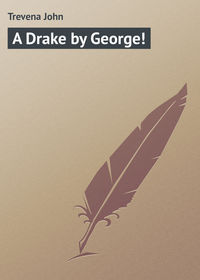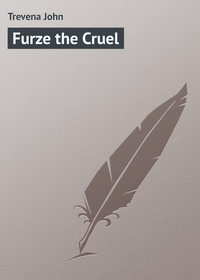 полная версия
полная версияThe Plowshare and the Sword: A Tale of Old Quebec
These men – the sole survivors of an expedition which had set forth with the object of establishing a small colony in the north – wasted no time in repining over their ill-fortune, or considering the hopeless nature of their position. They engaged themselves in mastering the topography of the fortress and ascertaining the strength of its garrison; they watched the river, and noted the coming and going of each ship; they made themselves friendly with the Iroquois, and from Shuswap, the chief of the Cayugas, a man who loved the English, they obtained from time to time much information of value. It was one of their number, Jeremiah Hough the Puritan, who had followed Van Vuren to the Indian camp-fire; and when he discovered that the Dutchman was indeed faithless to his allies and was endeavouring to stir up the Iroquois to strike a blow against the French position, he returned with the tidings to his comrades, and the little council of five sat for a long night and discussed this Dutch policy with the cool shrewdness of their race.
As a result of their debate, one of the little band was deputed each night to lie concealed upon the shore and watch the Dutch ship. Simon Penfold, the leader, a spare, grey man of two score years and ten, but hard and hale as any oak in his home meadows, played spy on the first night; Jesse Woodfield, a yeoman scarce thirty years of age, did duty on the second, and handsome young Geoffrey Viner, the boy of the party, beloved by his comrades for the sake of his long fair hair and comely face, kept watch on the third. On the fourth night the task devolved upon George Flower, a middle-aged, sad-featured man, the captain's faithful friend since the days of boyhood; and the next night found stern Hough the Puritan lying among the willows above the shingle, with his cold eyes fixed upon a single star of light which marked the position of the Dutch ship.
These five men, who made up the little company of Englishmen venturing into the French colony, were yeomen of Berks, farmers of the valleys and fields watered by the Thames, men of good repute, who had been driven to leave their native shore and seek another home in the wide new world through the oppression of the agents of the greedy English king.
The man who had discovered Van Vuren's plans had indeed delayed his flight too long. Scarred and lined as were the faces of Flower and Penfold, their features had at least escaped the terrible mutilation which had been inflicted upon Hough as an outward and visible sign of the royal displeasure. His ears had been cropped close to the skull, his nostrils slit, his cheeks branded, as a penalty for having stoutly refused to supply any portion of the necessities of King Charles, according to the demand of the most honourable Court of Star Chamber. The strong black hair which spread thickly over the Puritan's face, yet without hiding the trail of the branding iron and the primings of the executioner's knife, added a terrible touch to his dehumanised appearance.
It was on the fifth night after the watch had been appointed that Van Vuren played for his big stake. From a safe shelter among the willows, Hough observed a small fire upon the shore, and two men, one of whom appeared to be a native, watching beside the flames. Presently he heard a voice hailing softly from the darkness which overhung the river, and soon a black hulk loomed beside the shore.
Hough counted six men as they disembarked one by one, he saw the boat drawn up, and the beacon fire extinguished. That fire was still hissing under the water which had been thrown upon it when the Puritan crawled out of the thicket of red willow, and stood, leaning forward, listening attentively. When the sound of footfalls died away, he scaled the cliff behind, ran over the flat to the little river of Montmorenci, which was flecked with foam and shivering as it neared its long straight plunge, pulled a canoe from beneath the bushes, and shot across that dangerous passage as though it had been no whit more formidable than some sluggish reach of his native Thames. Had he dropped his paddle, death would have been inevitable; had he allowed himself to drift beyond a certain point the current would have dragged him down to the white bar of foam which marked a phosphorescent line across the darkness beyond.
Plunging again into the forest, he proceeded in the same headlong fashion, bearing to the right, always descending, until he struck a path through the interlacing trees, and finally reached rock-land and a cave cunningly concealed behind a screen of willow.
He whistled softly, and when his signal was answered pushed inward, drawing away a sheet of canvas which had been stretched across the entry to imprison more effectually the light. A fire burnt within, the smoke escaping from a shaft two hundred feet above; and round this fire were grouped his four companions, who started up with eager faces when the Puritan made his entry.
"Good news, I wot," cried old Penfold. "'Tis spoken already by your eyes, friend Hough."
"My eyes lie not," the Puritan answered. "Comrades, the Dutch have shown their hand. If we strike at once we shall assuredly kill their plan, and may perchance seize their leader."
In a few words he disclosed what he had seen.
"They go to hold council with the sachems," said Penfold, adding thoughtfully, "There will be no light until the dawn."
"Let us lie in wait for them beside their boat," the Puritan advised.
"Nay, let us fall upon them in the forest," cried Wood field.
"Not so," answered the leader. "A man cannot use his sword for the bush and the splintered growth from the pines."
"An Iroquois guide will accompany them," said Flower.
"The boat! the boat!" shouted young Viner. "That is the place."
"Peace, lads," cried Penfold, stroking his beard. "Let us discuss with reason. Why has this Dutch vessel made her way up the river? Roussilac would tell us that she has come to strengthen the hands of the French. Is it so? I trow not. It has ever been the policy of the Dutch to dissemble. Holland intends to keep the English from this coast if she may. Surely she desires also to drive out the French, in order that she may make herself mistress of the North American land. She is eager to make colonies, and she knows full well that the fortress may easily be defended once it be captured."
"She is, then, a privateer," exclaimed Hough.
"Not so. She is commissioned by the Government of the Netherlands to seize North America. The French are only a handful here. England has no fleet. Now is the crafty Dutchman's opportunity. Look upon this, my lads."
Penfold pulled a flaming stick from the fire and walked across the cave. He stopped where the side sloped as smoothly as a wall, and held the torch above his head, pointing to a map of the American colonies traced upon the wall of silica by charcoal. The design was roughly and incorrectly made; rivers were placed where mountains should have shown, and the scale was entirely inaccurate; but politically it was correct.
"See!" cried the leader, passing a finger through Chesapeake Bay, and laying his hand lovingly upon the province of Virginia. "There lies the fairest of England's colonies. Here, mark you, flows the Potomac, and here to the north behold the province of Maryland. What country lies back in the beyond we do not know, because the Mohawks are masters there; but pass north along the coast and we reach New England, the provinces of Connecticut and Massachusetts, with the king's towns of Boston and Plymouth. Between lie our enemies."
He passed his fingers across the words written on the wall, "New Netherlands," while the four men murmured behind.
"Did the Hollanders acquire their colonies in fair fight?" demanded Penfold, returning to the fire.
He flung down the brand, and as the sparks showered upward he went on, "I say it was through deceit. During the glorious reign of our Elizabeth, of blessed memory, our men of Devon, our Grenville, our Drake, our Hawkins smoked out the Spaniards, and wrested these colonies of the new world from the King of Spain in fair fight. Fair do I say? Ay, surely one tight English ship was ever a match for three popish galleons. But mark you how the jackals followed the lion, even as travellers from the Indies tell us they follow to take of that which the lion shall leave. Where the land was free, where there was no tyranny of the church to dread, mark you how the Dutch jackals crept in, to find a home and found a colony under the protection of the golden lions of England."
"Come, old Simon," broke in Woodfield. "Enough of talk."
"Ay, ay. Put out the fire, my lads. Rub out yon map. We have a plan which, with God's help, shall perchance furnish us with better quarters than this poor hole in the rock."
Young Geoffrey stepped back, spat upon the white wall where the words "New Netherlands" appeared, and obliterated the Dutch colonies with the flat of his hand.
"Let the map now stand!" he cried, and the others gathered round the boy whom they loved, clashing their swords, and taking courage from the thoughtless prophecy which was in God's good time to be fulfilled.
Then the Englishmen went on their way through the dark night.
CHAPTER V
DOUBLE DEALING
The Dutch master had played his game of duplicity with no little skill. His arrogant attitude towards the head men of the fortress, his outspoken hatred for the wild north land and its uncivilised inhabitants, his outward indolence and distaste for fighting, were all subtle moves towards the object he had in view. The culminating stroke of practically disarming his ship by sending out thirty of his best men upon a hunting expedition was, he considered, a veritable inspiration of genius. The plan had indeed succeeded in its purpose of hoodwinking the French, and Van Vuren was satisfied, because he knew nothing of the venturers who had discovered his plans and were preparing to strike a blow against him for the glory of their country and themselves.
Six men were admitted into their leader's confidence, and five of these only at the last hour. Everything seemed to favour the enterprise. The night which had been chosen for the council between Van Vuren and the headmen of the Iroquois was very dark. No sound came from the sleeping fortress; not a light was showing upon the French ship. The usual sentries were posted, but the darkness was too impenetrable for the keenest sight to carry more than a few yards. Van Vuren stepped to the side of his ship, listened intently for some minutes, and when the silence remained unbroken whispered an order, and the five picked men clambered down a ladder and guided their feet into a boat which rode alongside. The master followed, the boat was pushed off, and floating down stream swung rapidly round the bend.
"To your oars," muttered Van Vuren.
The black water began to trickle gleefully under the bows, the rowers dropping their blades cautiously and lifting them high to avoid a splash. Soon a spark of light broke out upon the shore, at no great distance from the falls of Montmorenci, where the river of that name discharges into the mightier stream. Swinging the tiller round, Van Vuren aimed the boat towards that light.
Beside the fire awaited them a stout Dutchman, who had lived in New Netherlands among the Indians on the banks of the Schuylkill and there had learnt the language, and with him was an Indian squatting upon his haunches. The latter was naked to the waist; a round beaver cap came low over his forehead, and long hair streamed down his cheeks. His body shone like polished mahogany as the firelight played across it. He rose when Van Vuren approached, and remarked upon the exceeding blackness of the night, and the stout Dutchman answered in the native tongue, "It is well."
After drawing their boat up the shore and putting out the fire, the men listened again for any sounds of hostile movements, and when Van Vuren was reassured as to their safety the party set off along an imperceptible trail, following their Cayuga guide, who strode rapidly towards the cover of the forest.
At the end of an hour's march they drew near the camp and perceived the glow of the council fire. The boles of the trees became ruddy, and they smelt the acrid smoke which curled upward in wreaths to find an outlet through the solid-looking roof of foliage, There was no vegetation below. Splintered stumps projected stiffly from the conifers; sometimes a fallen trunk lay across the way; the peaty ground was soft with pine needles. A fox barked monotonously in the distance. Occasionally a gust of wind passed with a sigh and a gentle straining at the mast-like firs.
The party stepped into a clearing, and Van Vuren halted nervously, tightening the sash which secured his doublet at the waist. Nine men appeared before him, seated under a protection of skins stretched tightly across a framework of boughs, the whole forming a lean-to which might readily be moved, either to break the force of the wind or to afford shelter from rain. The men squatted cross-legged, the majority naked to the waist and shining with fish-oil, a few wrapped in blankets, the heads of all covered with fur caps adorned with pieces of white metal or black feathers. Only one man was painted, and he showed nothing more than a triangular patch of red upon his forehead, the apex of the triangle making a line with the bridge of his nose. This man was smoking, and did not put down his pipe when the strangers arrived. The smoking was indeed a compliment, being the symbolic pipe of peace.
The nine were sachems of the great Iroquois tribes who in combination held the north of the continent: the Cayugas, Oneidas, Mohawks, Onondagas, and Senacas. The smoker was Shuswap, headman of the Cayugas, father of Onawa and Tuschota, and the chief doctor, one who professed to understand the language of the beasts, and knew how to hold communion with the dead. He looked up, drawing the stem of his pipe from his thin lips, and spoke:
"Do the white men, who come to us from the world where the sun never shines, speak to us now words of peace or of war?"
Van Vuren moved awkwardly when he saw the grave hairless faces peering at him through the hot vapour of the fire. At that moment the fat sailor from New Netherlands reached the clearing, panting like a dog. He presently interpreted the question, and his leader answered: "Tell the chief that we come from a world where the days are long, and where the same sun that warms this country shines from morn till night."
"That were waste of breath," muttered the seaman, who had none to spare, and he said instead to the council of nine: "The white chief has come in peace to seek the aid of the sun's children that he may overthrow his enemies."
"A people have taken my children to be their servants," said Shuswap. "That people armed the enemies of my race against me. Is the white man friendly with that people?"
"The French of whom the great sachem speaks are my enemies also," replied Van Vuren through the interpreter. "I would drive them from the land, and dwell here in peace beside my allies the great tribes of the Iroquois."
The crafty Dutchman reflected that, when the flag of the Netherlands waved over the heights, it would be easy to hold the Indians in the forest with a warship upon the St. Lawrence and a few cannon frowning from the cliff.
"The white man has called us into council," went on Shuswap. "What does he ask of us?"
At that the Hollander played his hand boldly. "I ask you to send your fighting-men against the French when I give the signal. I will sink the provision ship which lies upon the river, while your men sweep over the heights and capture the fortress. So shall you be avenged upon your enemies, the men who armed the Algonquins against you."
"It is well said," answered the council of nine.
"What signal will you give, that we may know when to make our attack?" said Shuswap.
"A raft of fire floating down the river."
The headman removed his eyes from the Dutchman and turned to consult his colleagues. They conferred for some minutes, without passion, without animation, apparently with no feeling of interest. Their faces were set, and they spoke with only faint motions of their lips.
"We will bring our children," said the old sachem at last. "When the fire is seen along the Father of Waters we shall make ourselves ready."
He bent forward, raised a short stick from the centre of the council fire, and held it out in his brown fingers, then dashed the brand suddenly upon the ground, and dreamily watched the upward flight of sparks.
"So let our enemies fly before us," he muttered.
"The sparks fly outward," said the sachem of the Oneidas.
"The Frenchmen shall not be able to stand before the children of the sun," they muttered with one voice.
The pipe was passed round with terrible solemnity, every Indian and Dutchman drawing once at the stem and handing it to his neighbour, and then the Hollanders left the clearing to return, well satisfied with their night's work.
It wanted yet three hours to the first breaking of the dawn, and the night was as dark as ever when the seven men came out upon the rocks, where they could hear the faint whisper of the river. There the Indian guide left them, and the Dutchmen, flushed with success, laughed and talked loudly, knowing that they were separated from the hearing of the French settlement by more than a mile of rock and bush. Advancing in single file, they came to the thicket of willow beside which they had left their boat.
"Is all well?" called Van Vuren, who walked at the end of the line.
As he spoke there fell a storm out of the night; a thunder of voices; the lightning of flashing swords; a rush of dark bodies around the boat. In the thick darkness all became confusion on the side of the attacked.
"English!" shouted Van Vuren; and, as the long body of the Puritan descended upon him, the master turned and fled, without honour, but with a whole skin. Only the stout seaman shared his leader's privilege of a run for his life, but him the far-striding legs of Hough pursued, covering two feet to the Dutchman's one. The wretch sweated and groaned as he flung out his aching legs, his great body heaving and staggering as cold as ice. He swore and prayed to God in one breath. He promised a life of service to the Deity, a treasure in the Indies to the pursuer; but prayer and promise availed him little. The mutilated man pressed upon him, and it was only the almost tangible darkness which prolonged his life for a few more agonised seconds. Then Hough bounded within reach, lunged fairly, pressing home when he felt flesh, and the fat Dutchman emitted a violent yell, and his big carcase rolled upon the rocks, his head settled, his mouth grinned spasmodically, his limbs twitched, and then he lay at ease, staring more blindly than ever into the night. Out of the six conspirators who had set forth that night, Van Vuren was the only man to escape with his life.
"Cast me these bodies into the river," said Penfold, wiping his sword. "But, stay. It were a pity to waste so much good clothing. Strip them first, lads. Naked they came into the world, and naked let them go out."
The bodies were denuded of their clothes and weapons. Five splashes shivered the face of the river, and then the Englishmen laid hands upon the boat and drew her down to the water. But an idea had occurred to Penfold, and he called a halt.
"We have the current to row against, and the night may break before we reach the ship," he said. "Let us disguise ourselves, so that French and Dutch alike may regard us as friends in the dimness of the morning. Here are five suits of Dutch clothing. There are five of us. We shall fight the easier in such loose-fitting trunks."
"Methinks they that fear the Lord have no need to adopt a cunning device," protested the Puritan.
"What know we about the ways of the Lord?" said his leader. "Does the Lord grant the victory to him who runs? Does He not rather send him a sword into his coward's back? The Lord, I tell you, helps that man who is the most subtle in devising schemes through which he may overthrow his enemies. A murrain on these garments! I shall be as a child when he has put on his father's trappings for the bravery of the show."
Already a grey-dark mist spread along the river where the night clouds were dissolving at the first light touch of the fingers of the day. The adventurers had but an hour for their project before the coming of the first light.
CHAPTER VI
THE INTRODUCTION TO A FIGHT
Upon the fore-deck of the Dutch ship two sailors were chatting idly beside a lantern's shaded light. They had tramped up and down, performing their duty in a listless fashion, until the general silence had convinced them that the officer in charge was asleep below. The determination to take their ease, which they thereupon arrived at, became strengthened by their belief that the vessel could not have been safer had she been at anchor-hold in the Zuyder Zee.
"Yon French ship has no sentries, I warrant," said Jan Hoevenden, the younger of the two. "What use, when a man may hardly see his hand when 'tis held in front of him? Your Indian does not attack by water, as Roussilac well knows. Neither shall he attack in such a darkness, unless hard put to it."
"'Tis a scheme of the master to deprive us of our hard-earned sleep," grumbled James Oog. "Come, comrade, let us rest here and smoke. Here is a parcel of tobacco which I dried yesterday in the sun."
The two sailors filled their pipes, lighted the tobacco at the poop lantern, and settled themselves aft speedily to forget their responsibilities. There was not a sound, except the hum of flies and the swirl of the river. There was nothing to be seen, beyond the gloomy masts and spectral rigging. The atmosphere remained still and close.
"This is but a poor country, Jan," observed the older man, after a few contented puffs at his huge pipe. "There be no treasure of gold or silver buried here."
"Nought but forest and rock, with a biting wind o' nights," replied Hoevenden. "'Tis a cold climate. The Indians say this river is thick with ice for a full half of the year."
"I wish for none of that. Give me the south. Hast ever been in Florida?"
"Nay. Is that land as fruitful as men say?"
"It knows no winter, and even in the midst of the year the heat is never so great that a man may not endure to work. The soil is so rich that grain dropped upon the ground shall spring into harvest in a month. Sugar and fruit grow there, and much timber for building. There is also game for the pot, and furs for a man's back."
"There are pestilent beasts, they tell me," Hoevenden grumbled.
"Well, man, there was never a paradise without serpents. True there are mighty reptiles, twenty feet in length, within the rivers, and monstrous scorpions upon land. But what of it? There are perils upon every shore. A man may sit out at night under a big moon, beside trees covered with white or pink blooms, every bloom as great as his head and smelling like wine, and he may listen to the Tritons singing as they splash through the sea, and watch the mermaidens – passing fair they say who have seen them – lying upon the rocks, wringing salt water from their hair. 'Tis a wondrous shore. I would rather own an acre of it than be master of all this country of cold forest where there is neither fruit nor flower."
"The fog arises yonder," said Hoevenden, pointing down the river.
The grey mass which he indicated ascended rapidly and drenched the deck with dew. There was as yet no light, but a heavy shadow had taken the place of the intense blackness, and the river was visible as it carried its current to the gulf. The two men rose suddenly, and hid their pipes when they heard the rattle of oars and splash of water.
"Shall be found at our duty," said Oog, with a husky laugh, and his fellow-seaman chuckled with him.
A boat was making rapid progress against the stream, Penfold, with an eye upon the fog and his right hand on the tiller, encouraging the rowers. The muscles sprang out from their arms, the sweat flowed from their faces, despite the rawness of the air. Hough's mutilated countenance throbbed terribly beneath his efforts. The ship started suddenly out of the mist, and Penfold called softly, "Easy, lads. Spare yourselves now, for we have soon to fight." But immediately the men stopped rowing, the current dragged the boat down.





